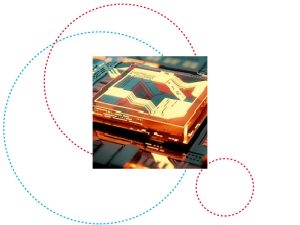Prof. Thomas Schmidt, Prof. Adolfo Del Campo and Associate Prof. Aurelia Chenu from the Physics and Materials Science Department of the University of Luxembourg have been awarded two large grants within the QuantERA Co-funded Call 2021 to advance Quantum Information and Communication Sciences and Technologies.
Entitled “Magnetic topological insulators for robust Majorana bound states”, the MAGMA project will be coordinated by Prof. Thomas Schmidt, head of the “Theory of Mesoscopic Quantum Systems” group. This project constitutes a collaboration between experimental physicists at FZ Jülich (Germany) as well as theorists at the University of Luxembourg and the University of the Balearic Islands (Spain). Its aim is to investigate a recently discovered class of materials, so-called magnetic topological insulators (MTI), as a new platform for quantum computation. Quantum computers have the potential to solve certain hard problems, such as materials simulations, much faster than today’s computers, and are thus one of the most coveted quantum technologies. The main challenges of the MAGMA project will be to theoretically model and experimentally manufacture nanostructures based on MTIs and then to couple them to superconductors. This will the cause the appearance of so-called Majorana bound states, an emergent quasiparticle which can act as a “qubit”, the essential building block for quantum computation.
Associate Prof. Aurelia Chenu and Prof. Adolfo del Campo, head of the “Quantum Dynamics and Control” and the “Quantum Information Theory” groups will conduct the project STAQS “Shortcuts to Adiabaticity for Quantum Computation and Simulation” in collaboration with Prof. Wolfgang Lechner (Project coordinator) from the University of Innsbruck/ Institute for Theoretical Physics, Austria and other partners from Germany (Walther- Meißner-Institut), Italy (University of Napoli and the National Research Council), and Poland (Jagiellonian University). The project targets fundamental science and aims at exploring a novel concept as a seed for technological implementations of adiabatic quantum simulation and computing. Its specific goal is to develop a comprehensive set of building blocks that replace and improve over the current state-of-the-art, such as adiabatic state preparation, by non-adiabatic processes using control techniques known as shortcuts to adiabaticity. This fundamentally new paradigm aims to detach from the slow, adiabatic limit, which currently hinders practical applications, and will be developed in a joint effort gathering experimental and theory groups.
Launched in 2016, the QuantERA programme is currently the leading European network of public Research Funding Organizations for Quantum Technologies. The QuantERA Call 2021, launched by 36 funding organizations from 27 countries, attracted 128 international research teams applying for over 132M EUR. At the second stage of the Call, 91 full proposals were proceeded and reviewed, of which 39 proposals have been recommended for funding by the Call Steering Committee. The success rate of the call reaches over 30%.
